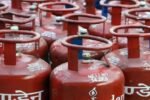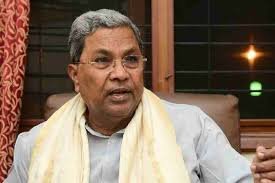Kolkata, April 4 (PTI): With fuel prices touching a new high every day, private bus and cab operators are contemplating taking their vehicles off the roads if the state and central governments did not provide some succour in the form of an allowance or make way for fare hikes to support the ailing transport sector.
Petrol and diesel prices were hiked by 40 paise a litre each, taking the total increase in rates in the last two weeks to Rs 8.40 per litre. This is the 12th hike in oil prices since March 22.
On Monday, petrol price in Kolkata stood at Rs 113.45 per litre, and diesel price at Rs 98.22 per litre.
The operators said the minimum bus fare should be hiked to Rs 15 from Rs 10, while for yellow taxis, the starting meter rate should be Rs 50 from Rs 30.
General secretary of West Bengal Online Cab Operators Guild, Indranil Banerjee, said they wanted cab aggregators to raise the fare by Rs 25 per km for AC rides and by Rs 20 per km for standard trips.
Tapan Banerjee, the general secretary of Joint Council of Bus Syndicate, said only 30 per cent of the 42,000 private buses are plying the city roads at present, and the number would dwindle further if oil prices continue to surge.
“Private operators are already bleeding under the dual effect of increasing operation costs and penalties charged by the traffic police. Hike in fuel prices have added to their woes. The operators unable to pay insurance fees,” Banerjee told PTI.
The state government, in January, effected a 10-fold increase in traffic violation fines.
As buses and minibuses stayed off the roads for the major part of 2020 and 2021 due to pandemic-related restrictions, maintenance cost of vehicles went up during the period.
Ninety per cent of the vehicle owners have failed to repay bank loans under such circumstances.
“We sent several letters to the Prime Minister and chief minister, but neither the Centre nor the state government responded. From high insurance premium to EMIs, the bus owners have to shell out every penny from their pockets while not making any profit from their daily trips,” he said.
A bus incurs an average expense of Rs 4,500-5,000 per day, while fuel cost goes up to Rs 11,000 for long-distance trips to places like Digha and Siliguri.
“As the last revision was effected in 2018, employees of many buses have upped fares at different stages unofficially, but the extra earnings are usually pocketed by them. We demand that a regulatory committee be formed to examine all aspects and fix fares accordingly. If the minimum fare of Rs 7 is not revised immediately, all buses will stop hitting the roads,” Banerjee stated.
As fuel does not come under GST, central excise and VAT get levied on petrol and diesel.
Currently, the state imposes 25 per cent VAT on petrol and 17 per cent on diesel.
The Centre levies Rs 27.90 excise on every litre of petrol and Rs 21.80 on diesel.
The bus association also demanded that the deadline to pay fees and taxes applicable on the vehicles which did not hit the roads in 2020-21 be extended till March 2023.
It also sought a package from the Centre and the state to boost the ailing sector.
The secretary of West Bengal Bus and Minibus Owners Association, Pradip Narayan Basu, said, “Not more than 2,000 buses and minibuses plied the roads on Monday.
“We will be holding talks with transport minister Firhad Hakim to sort out problems and save the industry,” he said, adding that many vehicles took to the roads only on those days when the passenger volume was expected to be higher than usual.
Nawal Kishore Srivastava of West Bengal Taxi Operators’ Coordination Committee, affiliated with the All India Trade Union Congress (AITUC), said around 13,000-14,000 taxis are currently operating in the city instead of the sanctioned 22,000.
“Most yellow taxis have gone off the roads due to high fuel prices. If the fares are not revised, it will be tough to bring out the vehicles. We will meet the transport minister soon o seek a solution,” he said.
App cab operator Uber has recently increased its fares by 12 per cent in Kolkata.
“After listening to feedbacks from drivers, we have understood that the current rise in fuel prices is causing concern. To help cushion drivers from its impact, Uber has raised trip fares in Kolkata by 12%.
“Over the coming weeks, we will continue to track fuel price movements and take further steps as deemed fit,” said Nitish Bhushan, head of central operations, Uber India and South Asia.
The move by Uber has rattled several people in the city, who are already grappling with increased prices of essential commodities.
Hakim, on his part, said the state government was exploring the possibility of coming up with a bill to check fare hikes of app cabs.
“We have no control over app-based cabs. But we are planning to bring a bill soon to keep them under our control,” Hakim said, while also maintaining that there was no plan to hold any meeting with the authorities of app cabs in this connection.







